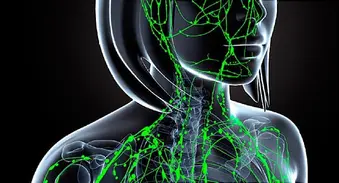Get to Know Your Lymph Nodes


Question 1/8
A lymph node’s super power is to:
- Build muscle
- Burn fat
- Get rid of germs
Question 2/8
How many lymph nodes are in your body?
- 100 to 200
- Several hundred
- Several thousand
Question 3/8
Where are your lymph nodes?
- In your brain
- In your kidneys
- All over your body
Question 4/8
Your lymph nodes are your body’s only defense against infections and disease.
- True
- False
Question 5/8
As you grow older, your thymus:
- Grows
- Shrinks
- Disappears
Question 6/8
You can live without your spleen.
- True
- False
Question 7/8
Bacteria or viruses can make your lymph nodes:
- Sore
- Swollen
- Both of the above
Question 8/8
Lymphoma is:
- A virus
- A bacterial infection
- A cancer
